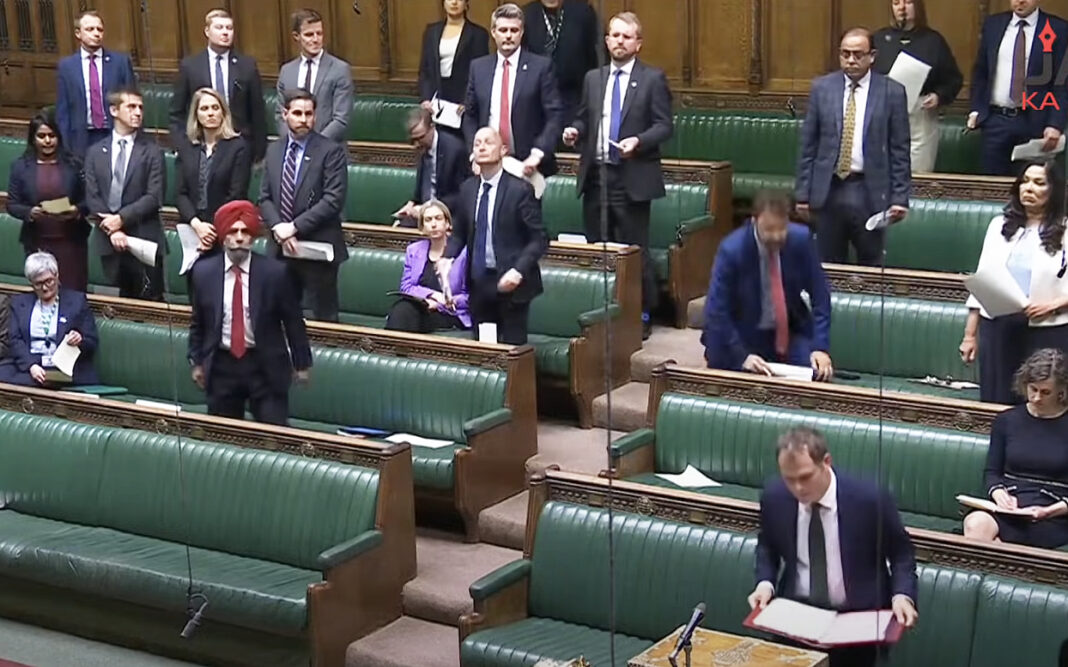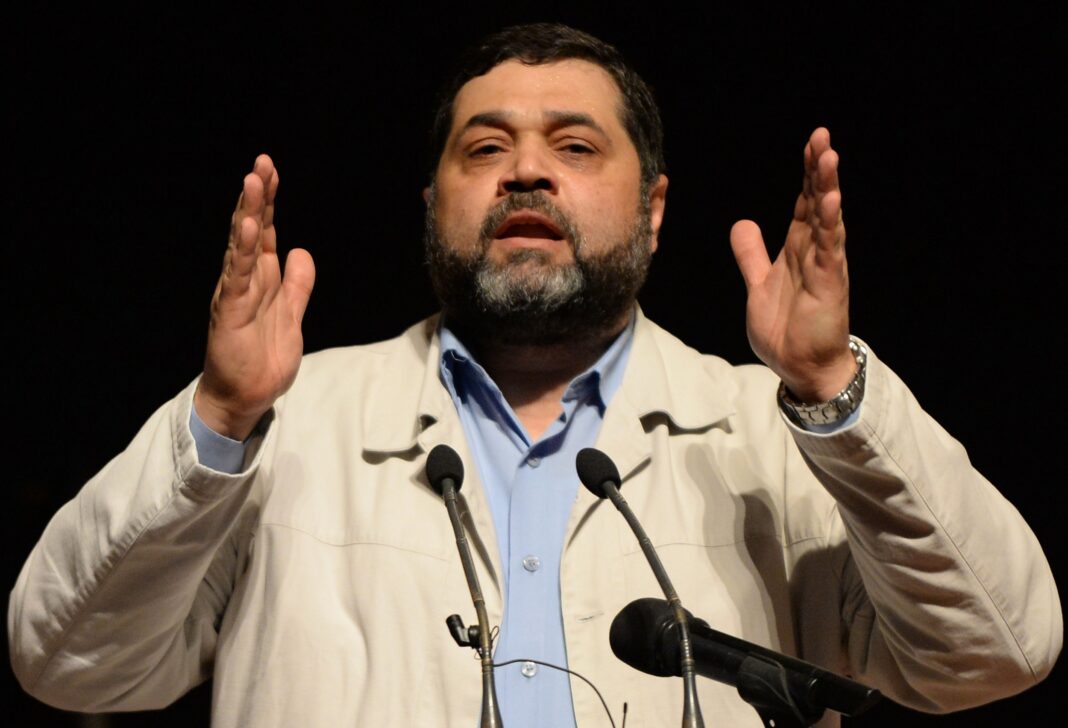In one of the most extraordinary and emotionally charged sessions in recent memory, the UK Parliament broke decisively with decades of political tradition on Tuesday by openly condemning the Israeli government for its conduct in Gaza, with the Minister for the Middle East, Hamish Falconer, declaring that Israel’s plan to occupy the territory and displace its population was “tantamount to ethnic cleansing.”
Falconer’s statement came in response to Prime Minister Benjamin Netanyahu’s announcement that the Israeli military would no longer conduct limited raids in Gaza but instead expand its operations to encompass full-scale occupation, including the holding of territory and the forced relocation of Gaza’s population “for their protection.”
“Palestinian territory must not be reduced, nor subjected to any demographic change,” Falconer told the House. “Any attempt to annex land in Gaza would be unacceptable. What we are seeing is a deepening humanitarian catastrophe.”
The shift in tone from the government was dramatic and prompted by a series of developments both at home and abroad. On the same day as the parliamentary debate, an Israeli airstrike targeted a tent camp in Rafah, killing at least 40 civilians, including women and children, in an area previously declared a safe zone by Israeli forces. The attack, documented and verified by BBC reporters on the ground, has been described by human rights groups and legal experts as a likely war crime under international law.
“This is not collateral damage. This is collective punishment,” said MP Nadia Whittome. “We are witnessing a genocide unfold in real-time. These are war crimes, and if we fail to act, we are complicit.”
Many parliamentarians, already under growing pressure from constituents, civil society, and legal advisors, have now publicly acknowledged that they may face future legal consequences if they continue to support arms sales, military intelligence sharing, or diplomatic protection for a government engaged in potential war crimes.
“There is a growing awareness in this House that what we are witnessing is not just morally indefensible but potentially legally indefensible,” one legal advisor to Parliament warned in a briefing. “If UK officials continue to facilitate these actions with full knowledge of their consequences, they may one day be held accountable under international law.”
“I Got It Wrong”: Pritchard Withdraws Support for Israel
In a deeply symbolic moment, Conservative MP Mark Pritchard, long a supporter of Israel, stood to make a stunning admission:
“For 20 years I have defended Israel in this House. I believed it was a beacon of democracy in a troubled region. But today I must say clearly: I got it wrong,” Pritchard said, his voice trembling. “What we are seeing is not self-defense, it is systemic destruction. The life of a Palestinian child is every bit as sacred as the life of an Israeli child. This moment will be remembered in history, and I want to be on the right side of it.”
His remarks were met with applause from across the benches, as MP after MP rose to denounce the Israeli offensive, call for an arms embargo, and demand the formal recognition of the State of Palestine.
Sanctions and Embargo Demands Grow
Across parties, demands for immediate sanctions against Israel intensified. Lawmakers urged the government to:
– Impose a total arms embargo, including halting all exports of F-35 components and dual-use military technologies;
– Sanction Israeli cabinet ministers such as Bezalel Smotrich and Itamar Ben-Gvir, who have publicly advocated for the complete destruction of Gaza and permanent annexation;
– Ban the import of goods produced in illegal settlements in the West Bank;
– Freeze the UK-based financial assets of individuals and entities involved in the war effort or obstruction of humanitarian aid.
“If we could sanction Putin for his crimes in Ukraine, we can and must sanction Netanyahu for what he is doing in Gaza,” said MP Imran Hussain. “We must stop hiding behind words and take real action.”
Minister Falconer confirmed that some export licenses for arms to Israel had already been suspended, but stopped short of announcing a comprehensive embargo, prompting sharp criticism from MPs.
“Your outrage is welcome,” said SNP’s Stephen Flynn, “but what this House is demanding is action, not anguish.”
October 7: A Narrative Unravels
Several MPs also addressed the October 7, 2023 attacks by Hamas, which Israel has used to justify its current military campaign. However, many of the Israeli civilians who died that day were killed by Israeli forces themselves, under the controversial Hannibal Directive, which prioritizes the prevention of hostage-taking over the lives of the hostages.
“We now know that Israeli forces, acting under the Hannibal Directive, killed a number of their own citizens,” said Andrew Percy MP. “The government of Israel refuses to investigate or disclose how many. This is not about defense. It is about erasure.”
In addition, it has become evident that many Israeli hostages have died in Israeli airstrikes while being held in Gaza — raising further questions about the military conduct of the Israeli Defense Forces.
Palestinian Statehood Back on the Table
The debate also reignited calls for Britain to formally recognize the State of Palestine. Numerous MPs, including several Conservatives, demanded immediate recognition as a practical and moral step.
“Recognition is not a prize to be awarded at the end of a negotiation,” said MP Andrew Percy. “It is a right. If not now, when?”
Minister Falconer confirmed that the UK is engaged in active dialogue with France and Germany in advance of the June UN summit on the two-state solution, where France is expected to recognize Palestinian statehood. The UK, he said, is “considering its position in light of recent developments.”
A Crossroads for British Foreign Policy
As the death toll in Gaza continues to climb and images of bombed-out cities, mass graves, and starving children continue to circulate, the UK government now faces a choice: continue to issue statements of concern while maintaining material and political support for Israel, or enact the sanctions, recognition, and embargoes that MPs and legal experts alike now say are necessary to avoid complicity.
“We will be judged,” said Labour MP Ian Byrne. “Not just by history books, but perhaps by courts. And right now, this government is failing both.”
Whether Tuesday’s debate will mark a true policy shift or a rhetorical high point remains to be seen. But for the first time in decades, the pillars of the UK’s foreign policy towards Israel appear to be crumbling — under the weight of war, law, and conscience.




